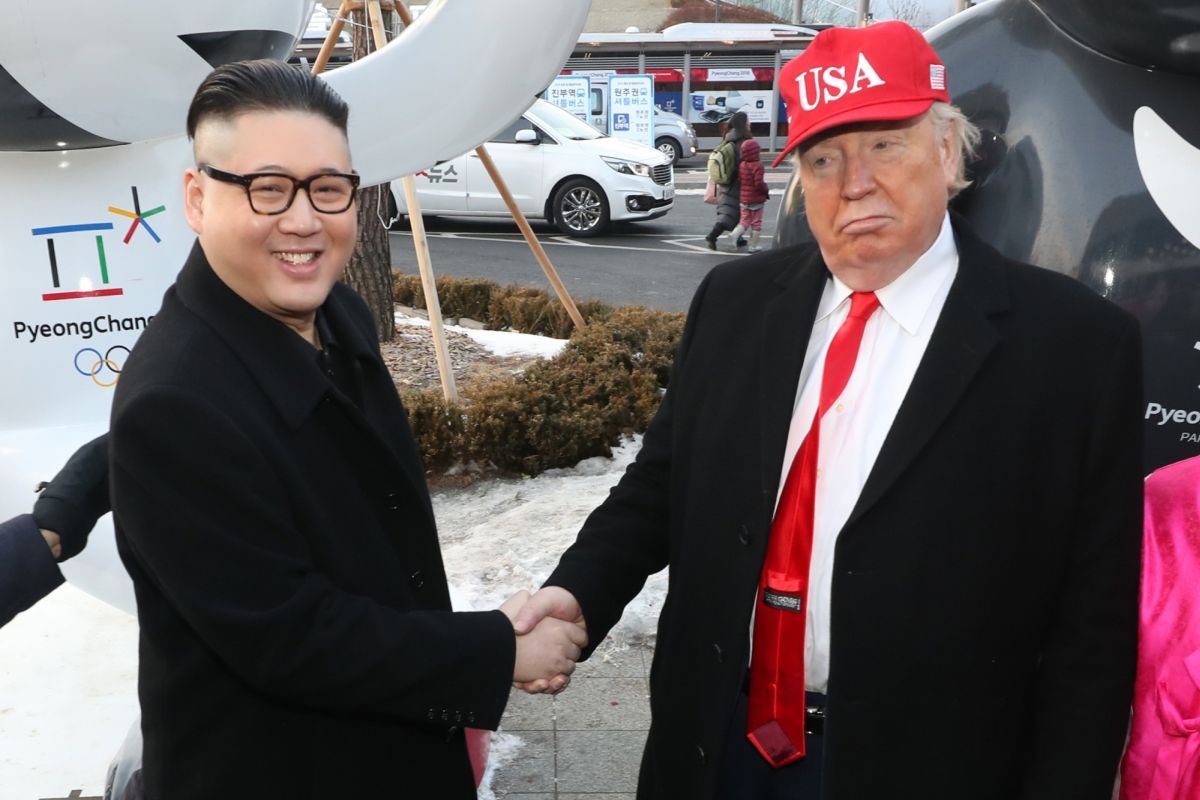In terms of optics, Donald Trump and Kim Jongun may have charted a new course in the frosty relations between the United States of America and North Korea. On the face of it, Sunday’s meeting between President Trump and President Kim at the Demilitarised Zone was an expression of simulated bonhomie after the serial setbacks in Singapore and Hanoi last year.
Of historic importance, nonetheless, must be the fact that this is the first time a serving US President has set foot on the soil of North Korea, arguably signalling a thaw in the 21st century version of the Cold War. Second, both leaders have expressed their intent to hold another round of talks on Pyongyang’s nuclear programme.
Advertisement
For all that, the post-Osaka grandstanding can scarcely be regarded as a breakthrough. Equally, it would be less than fair to debunk the meeting as a stunt on the part of the US President with an eye on the 2020 elections ~ as portrayed by an influential section of the Western press. Yet if both countries were to draw lessons from history, it would be pretty obvious that an event, happening for the first time, does not make it inherently momentous.
There is reason why Trump’s predecessors, who were not as impetuous as he is, never did this, just as they never met Mr Kim’s father and grandfather. Such playing to the international gallery tends to accord legitimacy and status to a country responsible for what the UN has called unparalleled human rights atrocities, and whose only diplomatic tool is its nuclear weapons programme over which the United States of America is more concerned than the comity of nations in the wider canvas.
Trumpian diplomacy is in large part a show, and North Korea is acutely aware of the same. Pyongyang’s disrespect for the US special representative, Steve Biegun, and its determination to keep talks at the very top of the bilateral agenda, is evident. The very best outcome might be token gestures towards denuclearisation on Pyongyang’s side and sanctions relief on the part of Washington. The charade of summits and spats might continue while North Korea continues to develop its nuclear programme.
Sunday’s bonhomie on the border did mark a criticical deviation from what they call the “roller-coaster diplomacy” that has been marked by personal taunts. Notably Trump’s epithet of “Little Rocket Man” after the North’s firing of missiles into the choppy waters of the South China Sea… and yet with the potential to strike mainland America. Remarkably prompt was Kim’s counter-blast, verily debunking Trump as a “mentally deranged US dotard”. Will such expletives be relegated to the footnotes of history? Further comment on the evolving narrative in a sensitive swathe of Asia must await the follow-through, most importantly the next round of talks on matters nuclear. Beyond the showboating, the shaking of hands to the north of the Military Demarcation Line must of necessity be followed through with a profound measure of sincerity on either side.











